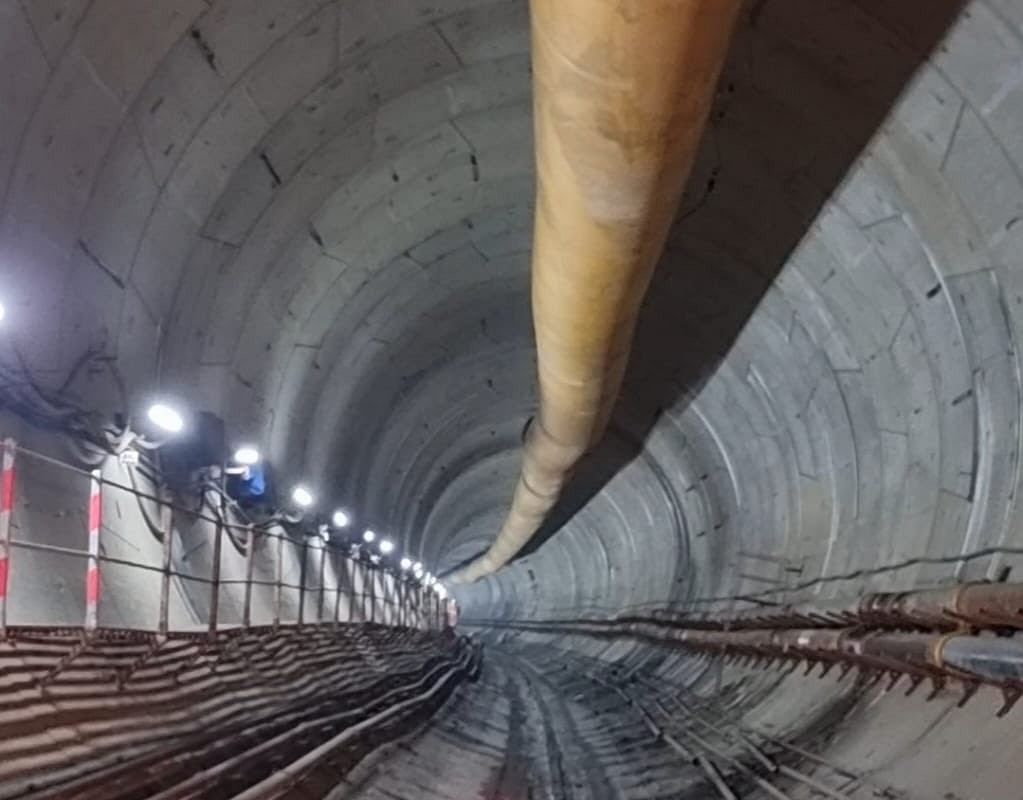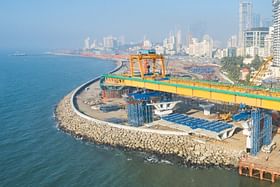The coastal road would cut down on noise and air pollution while reducing the journey time between Marine Lines in south Mumbai and Kandivli in north Mumbai by 70 per cent.
Fuel consumption will be decreased by 34 per cent.
The Phase 1 of the Mumbai coastal road project, from Marine Drive to Worli, is expected to be completed by November 2023.
The first phase of the coastal road is being built by the Brihanmumbai Municipal Corporation (BMC) at an estimated cost of Rs 12,500 crore to speed up the suburban commute to and from South Mumbai.
BMC planned to open Phase I, a 10.58-kilometre stretch from Marine Drive to Worli in south Mumbai, by November, said BMC chief engineer Mantayya Swami.
Once completed, the ambitious coastal road project (phase 1) will add an 8.5 km long and 20-metre wide sea promenade to the city between Priyadarshini Park at Napean Sea Road and the Worli side of the Bandra Worli Sea Link.
The project is to be constructed in two phases. The second phase involves connecting Bandra Sea Link to Kandivali Junction. Work on this stretch is yet to commence.
While Larsen and Toubro is executing Package 1 and 4 of the coastal road at Rs 7,489 crore, a joint venture between Hindustan Construction Company (HCC) and Hyundai Development Company (45 per cent) is executing Package 2 and 3 at the cost of Rs 2,126 crore.
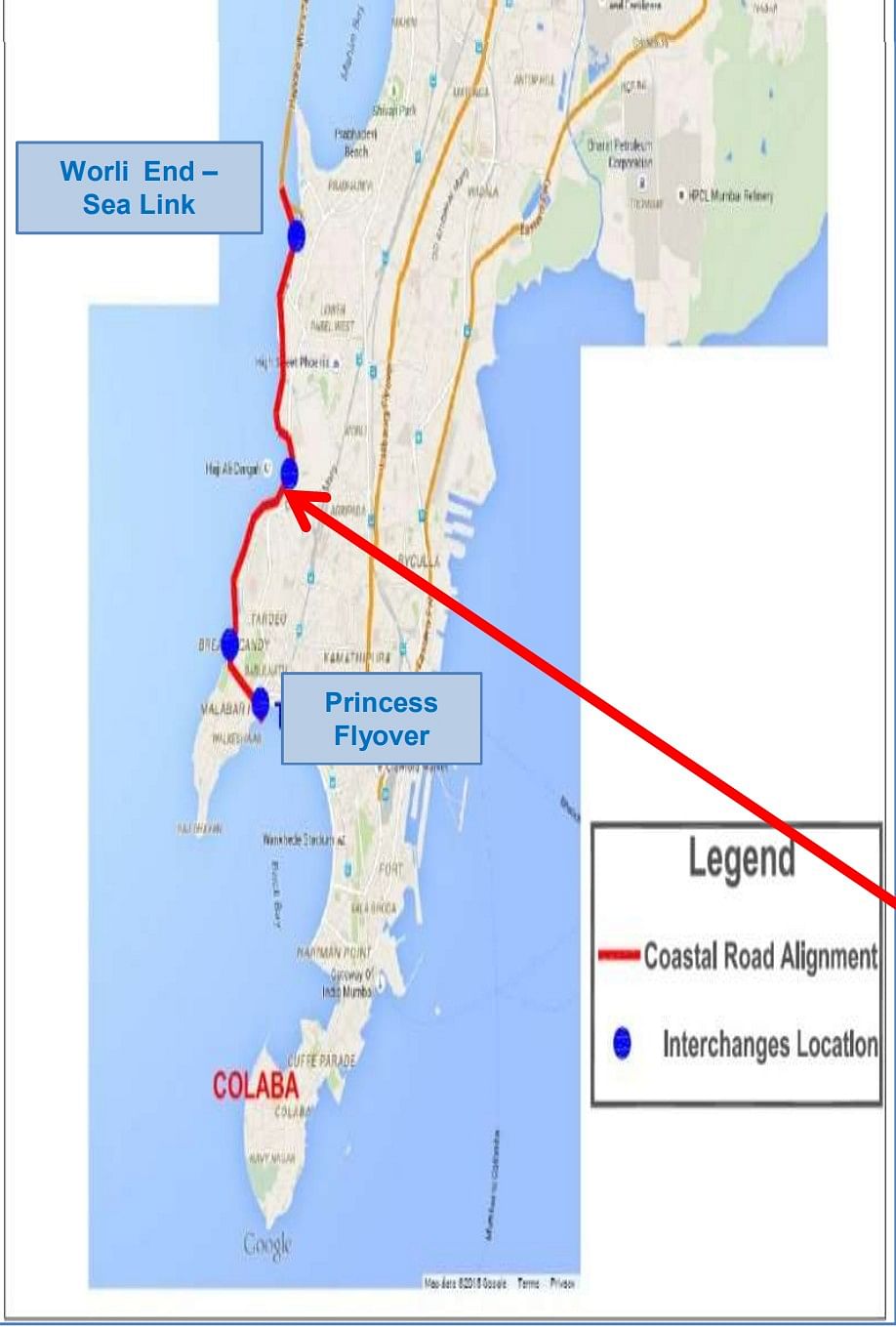
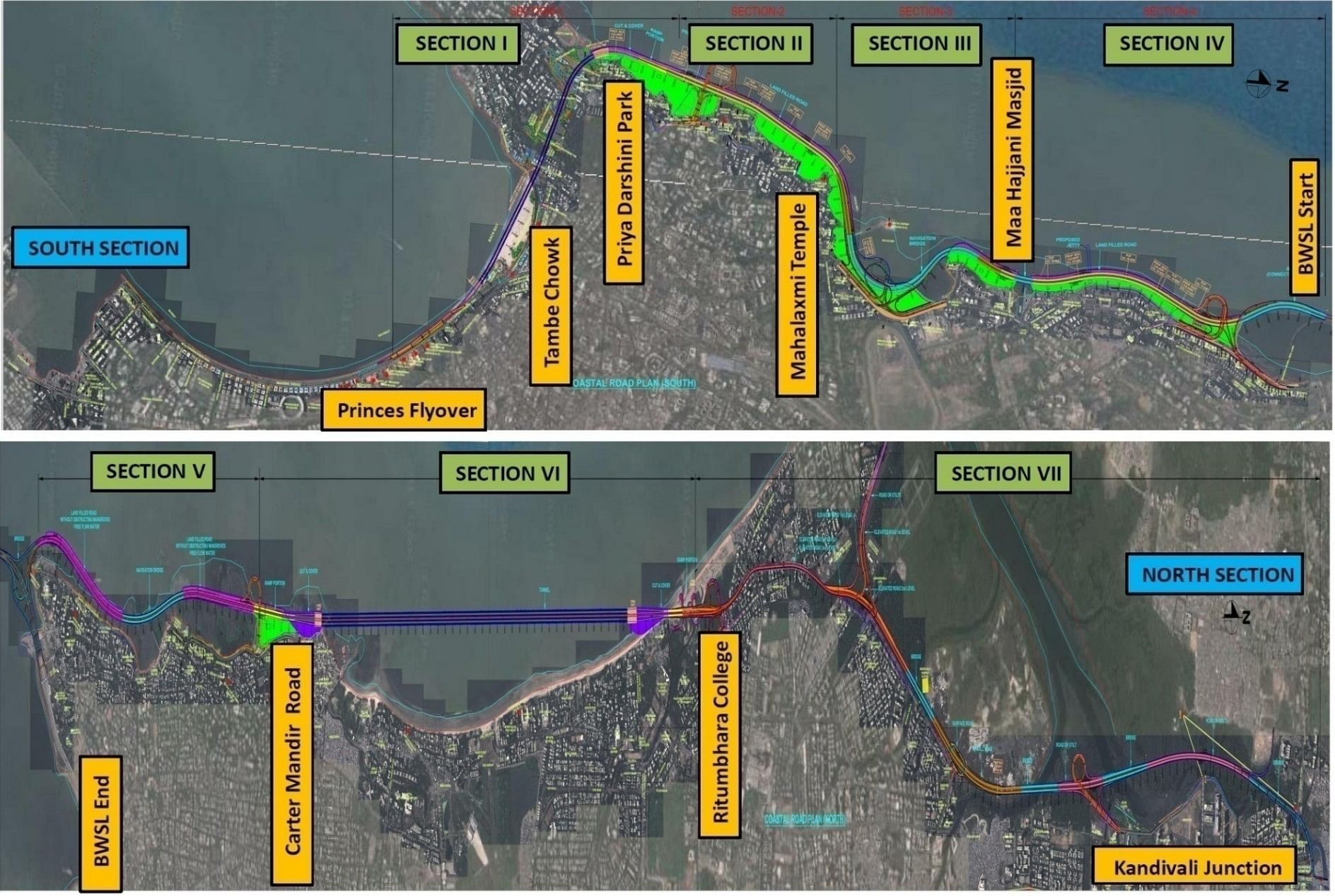
According to a senior BMC official, up to 71 per cent of the work is complete on the coastal road project between Princess Street Flyover and Bandra Worli Sea Link (BWSL).
About 91 per cent of the underground boring work, 93 per cent of the reclamation, 79 per cent of the retaining wall, 36 per cent of the interchanges, and 32 per cent of the bridges have been completed according to Swami.
The coastal road has three interchanges: Haji Ali, Worli, and Amarson’s junction.
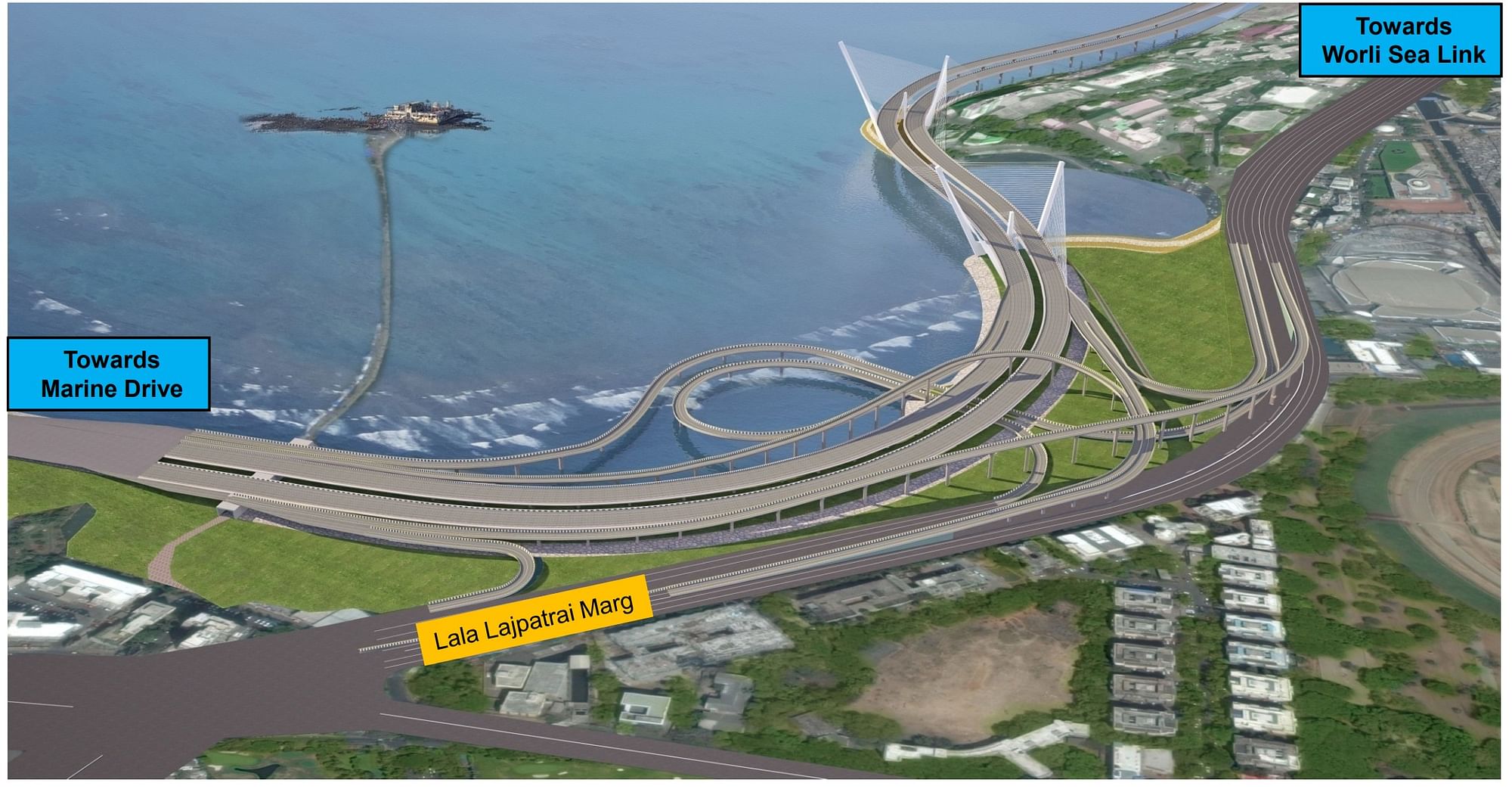
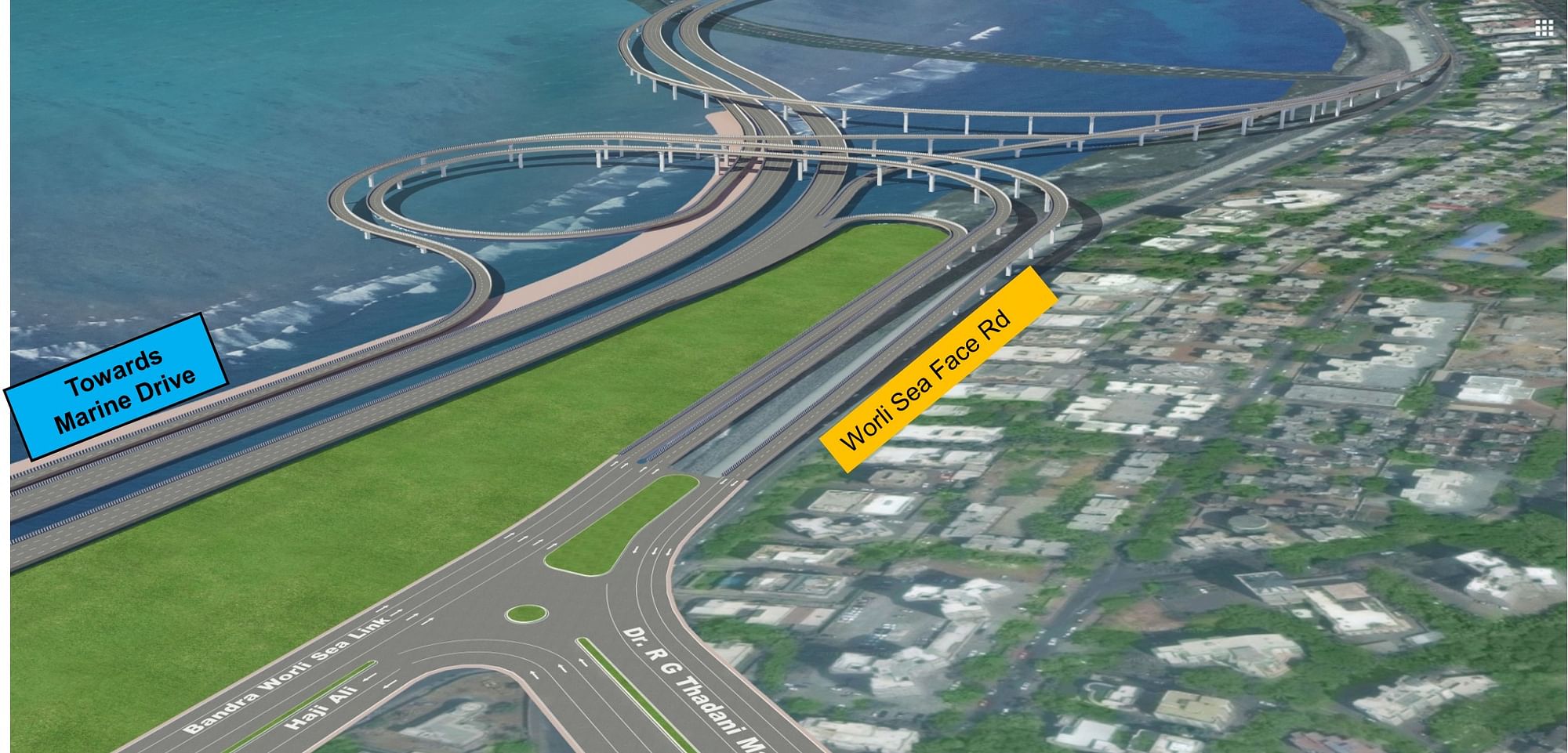
The bridge connecting the Worli-Chowpatty stretch was left midway owing to objections from fishermen who wanted a bigger span on the last leg. “We are constructing a sample promenade now,” said deputy engineer Vijay Zore, reports Hindustan Times.
The Marine Drive promenade is 3.25 km long and 10 metre wide while the coastal road promenade is 7.5 km long and 20 metre wide.
People could access the promenade via the pedestrian underpass, according to Zore.
A cycling track will be on the landward side, and there are four huge car parks under the coastal road that can accommodate 1,800 vehicles. Additionally, there will be a 70 hectare open space, of which 50 hectares will be designated as green space, added Zore.
The coastal project is set to dramatically transform the coastline in South Mumbai, which has a long history of reclamation. Once complete, the road will extend the coast up to 100 metre inside the sea.
According to Swami, the coastal road would cut down on noise and air pollution while reducing the journey time between Marine Lines in south Mumbai and Kandivli in north Mumbai by 70 per cent and fuel consumption by 34 per cent.
The Mumbai Metropolitan Region Development Authority (MMRDA) also plans on constructing a tunnel to link the Eastern Freeway to Marine Drive and then to the coastal road.
Chief Minister Eknath Shinde, has instructed the BMC to finish the coastal road by December 2023.
Shinde has also asked MMRDA to expedite the construction of the Worli-Sewri link, which will connect the project to the trans-harbour link.
Tunnels under hill and beach
The Mumbai coastal road project involves the construction of 12-metre-wide twin tunnels under Malabar Hill (75 metre deep) and Girgaum Chowpatty (25 metre deep) between Priyadarshini Park and Marine Drive in South Mumbai. The length of each is 2.07 km from Priyadarshi Park to Chhoti Chowpatty at Marine Drive, close to the landmark Chowpatty beach at Girgaum.
In Dec 2020, Larsen & Toubro commenced the deployment of TBM Mavala – the largest tunnel boring machine (TBM) ever to be used in India – at the Priyadarshini Park launch ramp for building twin tunnels of the coastal road project.
TBM Mavala completed the first tunnelling work on January 11, 2022. It began the excavation work for the second tunnel on March 30. Mavala excavated around 600 metre of the second tunnel within three months.
